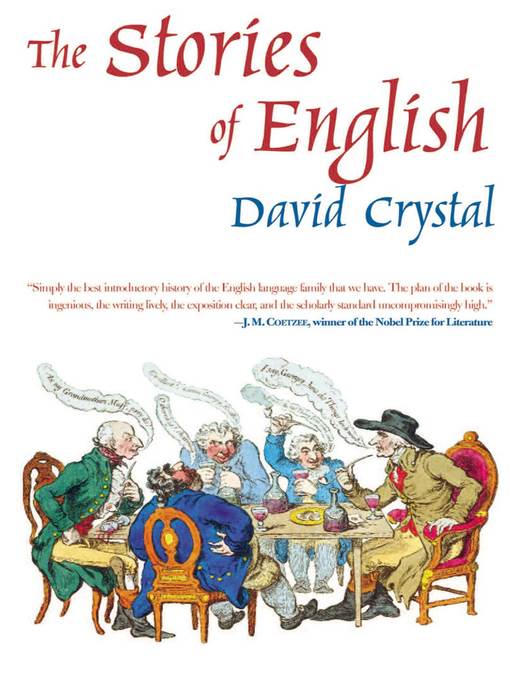
The Stories of English
کتاب های مرتبط
- اطلاعات
- نقد و بررسی
- دیدگاه کاربران
نقد و بررسی

August 9, 2004
Leading British linguist Crystal (Shakespeare's Words
) immediately distinguishes his pluralistic study of English's evolution from the standard, narrowly focused histories by describing not only how it evolved on an isolated island example from a Germanic language to the standard English we know today., but also on marginalized regional dialects, vernaculars and other "nonstandard" examples, beginning with the origins of Old English. He shows, for example, how even Chaucer and Shakespeare embraced dialects in The Canterbury Tales
and Henry V.
There are also lighter moments, such as Crystal's examination of the Anglo-Saxon intonations of Yoda in Star Wars
and of Tolkein's Middle Earth idioms. Writing of the 18th century, the author contrasts the proscriptions of Dr. Johnson and others regarding spelling, grammar and pronunciation with the efforts of Americans such as Noah Webster to differentiate American from British English. (Regional and ethnic variations elsewhere in the British Empire receive more cursory treatment.) However, Crystal glosses over the current status struggle in the U.K. between more "authentic" dialects, such as the northern Liverpudlian, and newer ones, such as the suburban Estuary English. As for the language's future, Crystal wishes to see Standard English taught alongside familiarization with the varieties of dialects. Although he doesn't spell out how to accomplish this, his well-informed and appealing book makes a good case for the importance of dialects. 9 b&w illus., 12 maps.

Starred review from November 15, 2004
Crystal (Shakespeare's Words; Language and the Internet) is a professor of linguistics who was awarded an Order of the British Empire in 1995 for his services to the English language. His wonderful postmodern study of the history of the English language, for both the scholar and the educated reader, breaks new ground in its attention to nonstandard English and to dialectal dialog in literature at all periods of the development of the language. Crystal shows how linguistic change and other aspects of historical and cultural change are linked and delights in geographic and ethnic variation. Beginning with "The Dream of the Rood," an Old English or Anglo-Saxon poem, he reveals that "linguistic purity" has never existed and that English is far more interesting and complex than standard accounts of normative language have indicated. The book reads easily. As its title implies, it tells many stories-and tells them well. Essential for all libraries.-Carolyn M. Craft. Longwood Univ., Farmville, VA
Copyright 2004 Library Journal, LLC Used with permission.

Starred review from October 1, 2004
For at least 200 years, the story of English has been the story of Standard English triumphant. But now, in a work of unprecedented scope and range, a distinguished linguist challenges that deceptive hegemony, showing with piquant detail and lively anecdote that no standards of correctness have ever really contained the surging energy of English, in all it multiform varieties. From the syntactical inventiveness of tenth-century Norse invaders to the lexical ecumenism of twenty-first-century Tex-Mex ranch hands, Crystal traces the diverse and unpredictable influences that have shaped English into an unruly family of dialects, creoles, and patois. To be sure, Crystal acknowledges the emergence during the fourteenth and fifteenth centuries of a prestigious standard version of English. Yet he shows in instance after instance that the tempests of linguistic change have often overwhelmed the custodians of the King's English, compelling them to accommodate forces they could not control. And though he never loses his focus on language, Crystal allows some of its more colorful users--including Chaucer, Shakespeare, Samuel Johnson, and Thomas Jefferson--to bring their personalities and voices into the chronicle. Accessible to the nonspecialist, Crystal's rich chronicle still presses deeply enough into key episodes (the Great Vowel Shift and the Elizabethan effervescence, for instance) to entice even casual readers into the more scholarly sources listed at the end of the book. Why, after all, should professional philologists hog all the fun?(Reprinted with permission of Booklist, copyright 2004, American Library Association.)

























دیدگاه کاربران